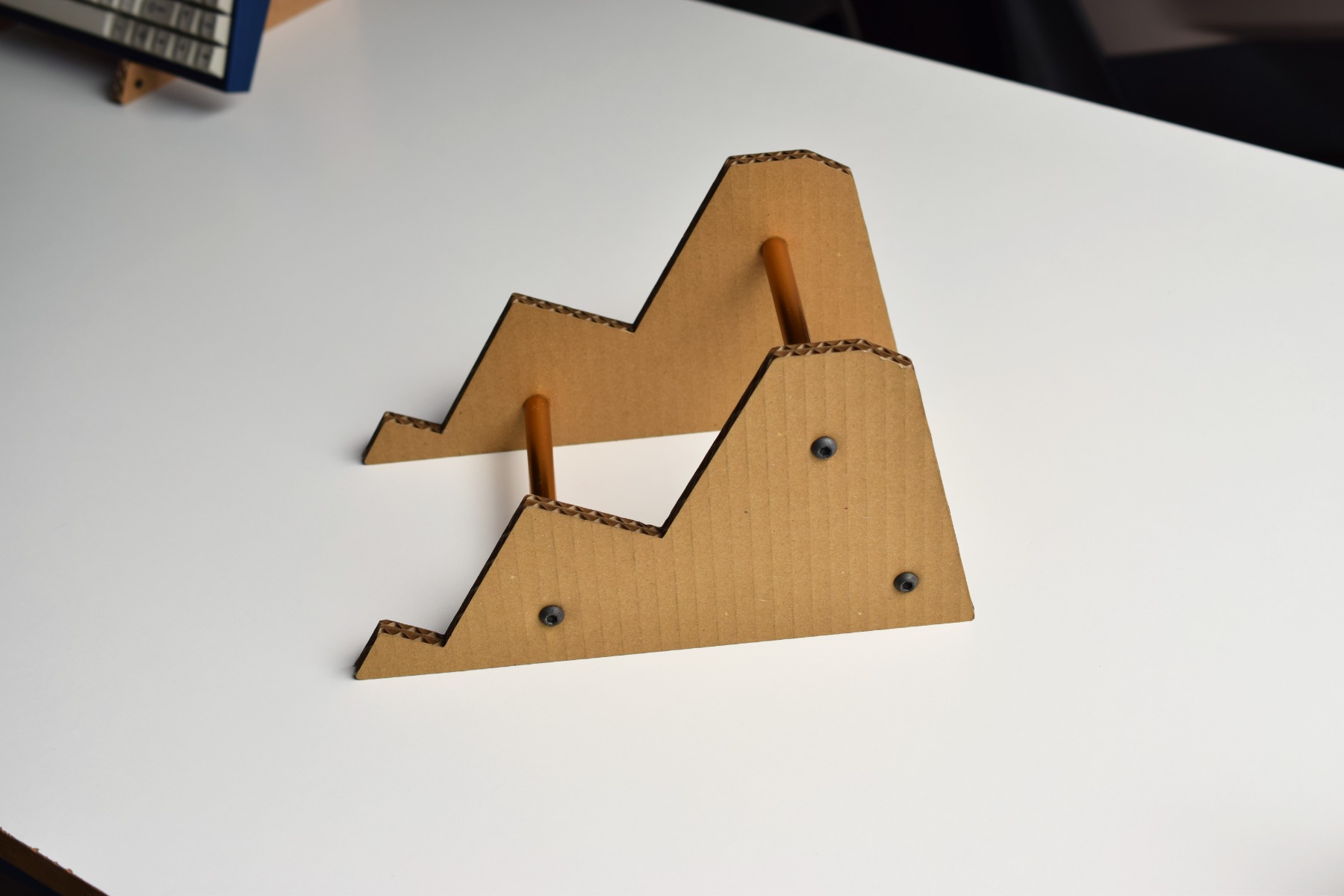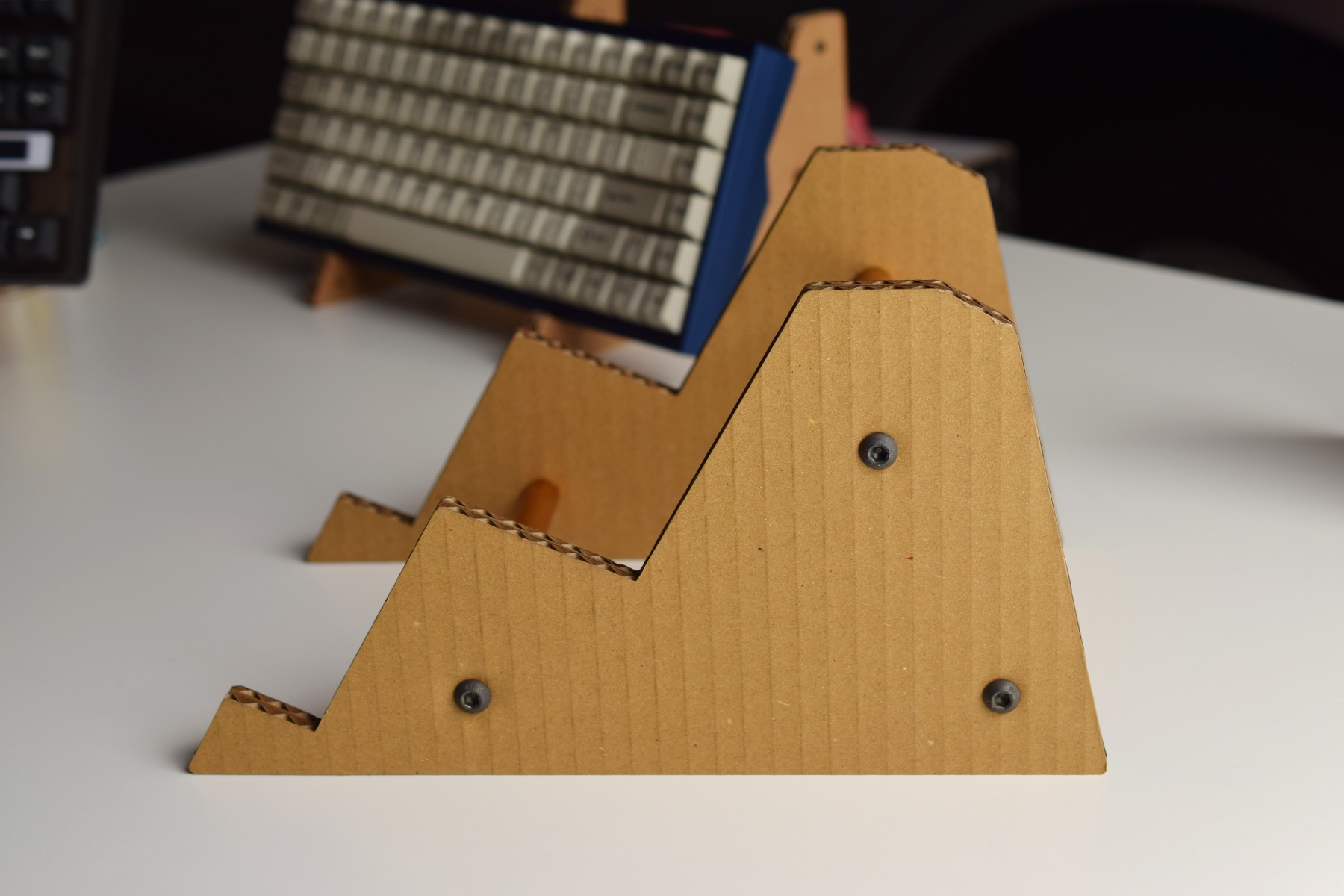Design Considerations for My Dual Keyboard Stands
22 February 2022
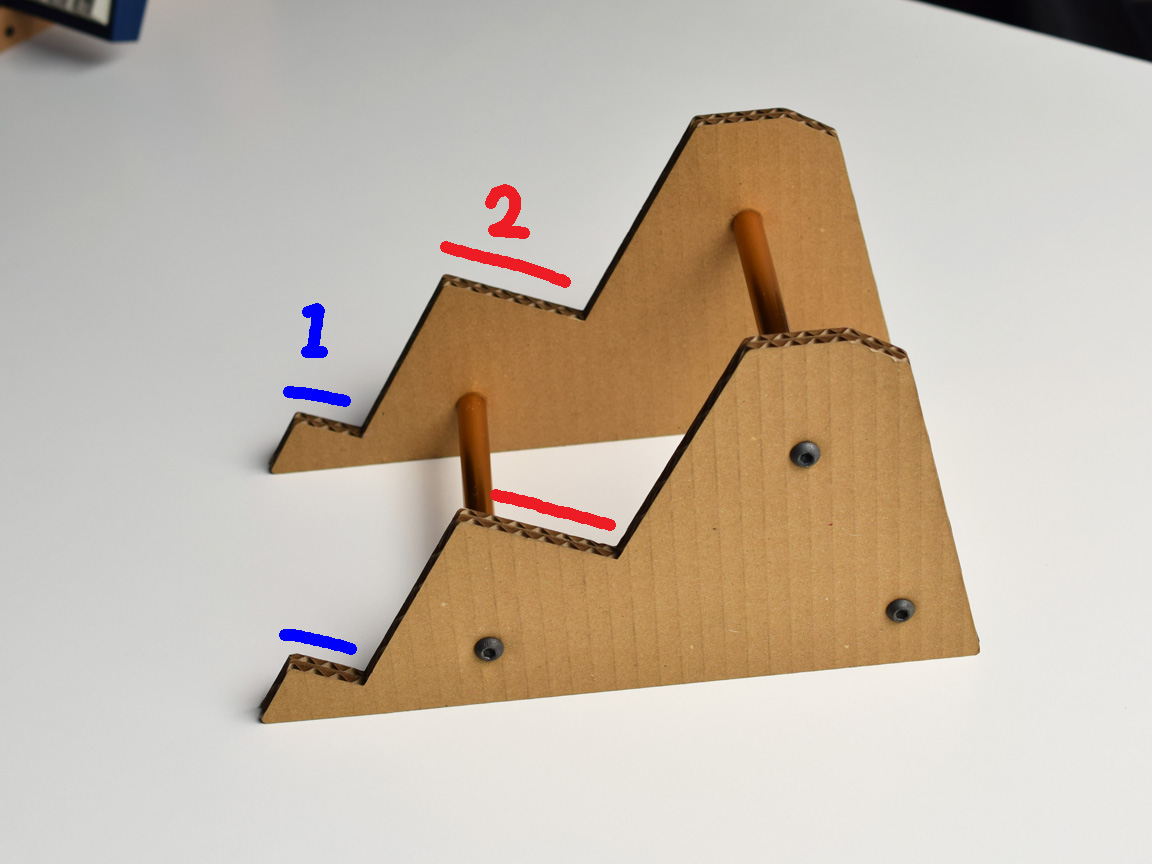
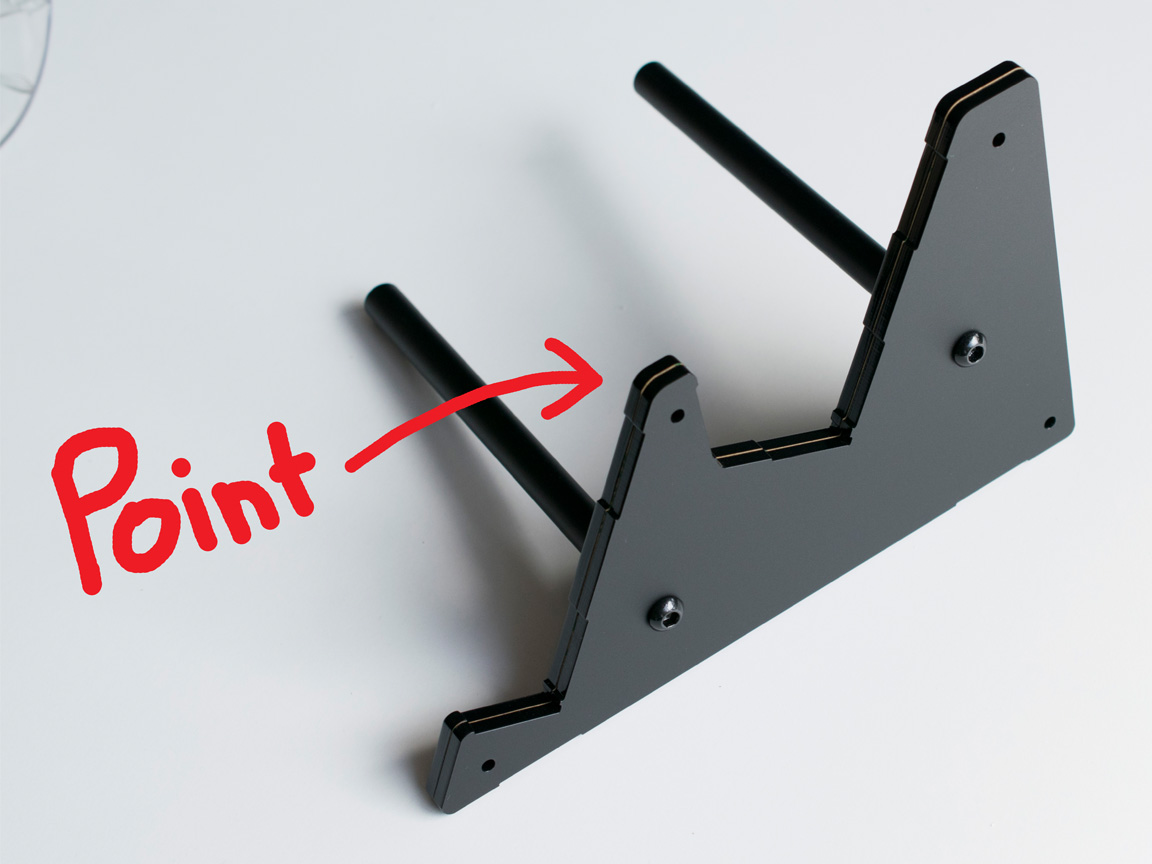
Aesthetics
Initially, I wanted my design to be a simple shape; flat without any “points or peaks”. However, for this design to happen, the second ledge cannot be lower than where the first ledge ends.
While this isn’t necessarily a problem, it leads to some future predicaments for both me as the producer, and the customer as the end-user. Ultimately, I decided to completely re-evaluate my approach and abandon the idea of a simple shaped Double Stand.
I’m aware some people detest the visuals of a dual stand which hides the second keyboard behind the first, however I feel visuals are worth sacrificing for the sake of function.
“How often will someone be looking at the side profile of a stand, shouldn’t focus be on the two beautiful keyboards on display?”
Practicality
A current advantage of my design is the small form-factor; people can now keep two keyboards in a space which would normally only fit one. I believe it’s important for me to consider the end-user’s use-case, and I should try to accommodate their needs where possible. While there isn’t a standard size for a shelf, by keeping my design small, I open up more opportunities for spaces which can fit my Double Stand. The Double Stand has a depth of 20cm, which is as compact as I could get without too many compromises.
“What value does a double stand provide, that two singular stands do not?”
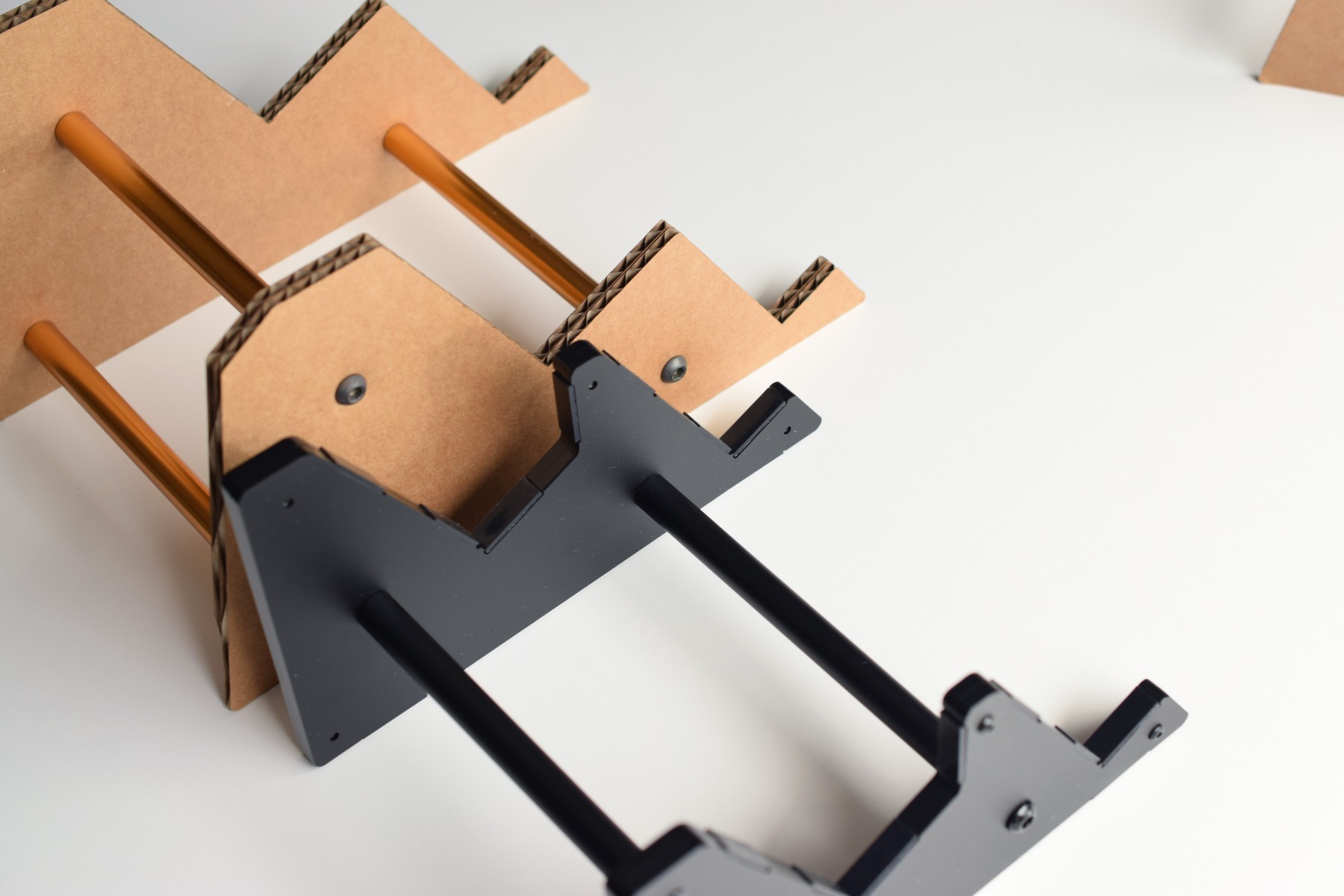
The final design is much more compact than the initial proposal.
After a trip to IKEA, the book shelves I’ve measured are between 20cm and 30cm in depth. For additional reference, a vertical A4 sheet of paper is 21cm in width; I think it’s reasonable to say ~21cm is a good reference point to use for the depth of shelf.
If I’m displaying two of my beloved keyboards on a shelf, an overhanging keyboard stand is not an option. The stand needs to be smaller than the shelf; I do not want to risk any accidental bumps or knocks.
“What’s the point of a display piece that can’t actually fit in the space you want to display it?”
Affordability
For better or worse, I’m blessed with a pretty good Standard of Living here in Australia. Unfortunately, that also means the price of my goods will reflect that; given I’m producing and packaging everything in-house.
Pricing involves multiple factors; however in its simplest, machine-processing time, material cost, and labour are major influencers.
A few advantages my current design has, as opposed to a larger design are:
- Faster processing times on the laser machine
- Requires less materials -> Less surface area -> Efficient nesting options
- Easier and quicker to handle + pack
The points above are extremely important and desirable because it means I can offer customers a more affordable product.
I’ve tried my best to optimize where possible because I understand some customers are simply after “X item to serve Y purpose at a low cost”.
Cardboard Prototypes of My Inital Design
